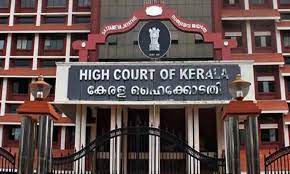The Kerala High Court in the case K R Jayaprakash V. State of Kerala observed and has held that a ward passed by the Lok Adalat which does not contain the signatures of both parties to the settlement is not valid in the eyes of law.
The court in the case observed and has held that the signature of the counsels for the parties would not be enough to give validity to the award.
The single bench headed by Justice Viju Abraham in the case observed and has referred to Section 22C (7) of the Legal Services Authorities Act,1987, Regulation 33 of the Kerala State Legal Services Authority Regulation, 1998 and Regulation 17 of the National Legal Services Authority, the Lok Adalat Regulations, 2009 in order to conclude that both the parties must affix their signatures to the award and when the parties are represented by counsels, they must also affix their signatures.
In the present case, the petitioner’s land was acquired for the construction of Changanacherry – Kottayam by-pass and an award was passed by the Land Acquisition Officer. Therefore, the said award was challenged before the Sub Court and an award was passed and the decree was passed and the petitioner filed an execution petition.
The counsel appearing for the petitioner submitted before the court that the petitioner made an inadvertent mistake where the actual amount due to the petitioner was not claimed, thus, only the lesser amount was claimed.
Further, the court observed that the matter was referred to the Lok Adalat and an award was passed.
The petitioner in the plea contended that since the award was not signed by the petitioner, the award passed is not executable. Therefore, the petitioner made aware of the error in calculation of the amount to be claimed was only when the Lok Adalat passed the award.
The plea stated that an award drawn in accordance with a settlement, is not executable award until and unless it is signed by both parties and it is contended before the court that the award is based on miscalculation and the respondents are trying to take advantage of their bona fide mistake of the petitioner.
On the other hand, it ahs been argued by the respondent that an award was arrived at on account of settlement between the parties.
However, it was also argued before the court that the award was arrived at on account of settlement between the parties. It was also argued that the counsel for the petitioner had affixed his signature in the award. Further, the respondent referred to Regulation 39 of the Regulation 1998 which states that lawyers can appear on behalf of the parties at the Lok Adalat, hence the signature of the counsel would suffice to validate the award.
It has also been observed by the court that the State should not take undue advantage of the bona fide error on part of the counsel appearing for the petitioner.
Further, the said court observed that the signature of the counsel for the parties would not be enough to make the award binding.
The counsel, Adv. Aysha Abraham and Adv. S Sarath Prasad appeared for the petitioner.
The counsel, Adv. Bimal K Nath, Government pleader.
Award by Lok Adalat non executable if it does not contain the signature of both parties to settlement, observes Kerala High Court
- Advertisement -

